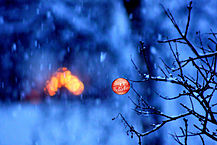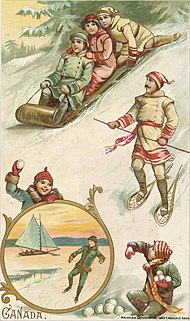User:Dustfreeworld
On air pollution, climate change, carbon dioxide and bad practice of recycling (originally posted here)
| |
|---|---|
|
All the rivers run into the sea; yet the sea is not full; unto the place from whence the rivers come, thither they return again.
All things are full of labour; man cannot utter it: the eye is not satisfied with seeing, nor the ear filled with hearing.
The thing that hath been, it is that which shall be; and that which is done is that which shall be done: and there is no new thing under the sun.
Ecclesiastes 1:7-9 King James Version
"If you want to learn about the health of a population, look at the air they breath, the water they drink, and the places where they live."
– Hippocrates, the Father of Medicine, in the Fifth Century B.C.
“There may be new or clear answers in the remaining 20% of knowledge that may be thrown away. I think it’s important to have an ‘open mind’ to leave possibilities and believe in them. In addition to this, you also need things like obsession and persistence.” [1] (machine translation)
– Seung Chan Kim, Korean scientist and inventor [2]
Barnstars

|
The Citation Barnstar |
| Thanks for adding information and sources to Industrial Fasteners Institute. I originally wasn't confident that we could find many sources for, but I'm so glad that we were able to improve the article. I love the fun detail you added about the Titanic disaster. WhatamIdoing (talk) 05:23, 28 November 2023 (UTC) |

|
The Editor's Barnstar |
| I noticed that you made your 5,000th edit to the English Wikipedia today. Congratulations on reaching that rare milestone. Out of every 500 new people who make their first edit, only about one achieves your volume. WhatamIdoing (talk) 04:09, 13 April 2024 (UTC) |
Greetings

|
Merry Christmas and a Prosperous 2024! |
|
Hello Dustfreeworld, may you be surrounded by peace, success and happiness on this seasonal occasion. Spread the WikiLove by wishing another user a Merry Christmas and a Happy New Year, whether it be someone you have had disagreements with in the past, a good friend, or just some random person. Sending you heartfelt and warm greetings for Christmas and New Year 2024. Spread the love by adding {{subst:Seasonal Greetings}} to other user talk pages. |

|
—Tenryuu 🐲 ( 💬 • 📝 ) is wishing you a Merry Christmas!
This greeting (and season) promotes WikiLove and hopefully this note has made your day a little better. Spread the WikiLove by wishing another user a Merry Christmas, whether it be someone you have had disagreements with in the past, a good friend, or just some random person. Happy New Year! Spread the Christmas cheer by adding {{subst:Xmas3}} to their talk page with a friendly message. |
—Tenryuu 🐲 ( 💬 • 📝 ) 16:16, 25 December 2023 (UTC)



Hello Dustfreeworld: Enjoy the holiday season and winter solstice if it's occurring in your area of the world, and thanks for your work to maintain, improve and expand Wikipedia. Cheers, Ser Amantio di NicolaoChe dicono a Signa?Lo dicono a Signa. 04:40, 26 December 2023 (UTC)

--Ser Amantio di NicolaoChe dicono a Signa?Lo dicono a Signa. 04:40, 26 December 2023 (UTC)
many thanks for your xmas wishes, all the same to you Boynamedsue (talk) 07:02, 26 December 2023 (UTC)

Hello Dustfreeworld: Enjoy the holiday season and winter solstice if it's occurring in your area of the world, and thanks for your work to maintain, improve and expand Wikipedia. Cheers, CAPTAIN RAJU(T) 20:21, 26 December 2023 (UTC)
- Yes - many thanks for the greetings and very best wishes to you for the New Year --Iztwoz (talk) 11:18, 27 December 2023 (UTC)

|
Happy New Year! |
Hello Dustfreeworld: Did you know ... that back in 1885, Wikipedia editors wrote Good Articles with axes, hammers and chisels? Thank you for your contributions to this encyclopedia using 21st century technology. I hope you don't get any unnecessary blisters. |
- Spread the WikiLove; use {{subst:Happy New Year elves}} to send this messageCAPTAIN RAJU(T) 22:18, 31 December 2023 (UTC)
This user is going to be on Wikipedia in off-and-on doses and may not respond swiftly to queries.

